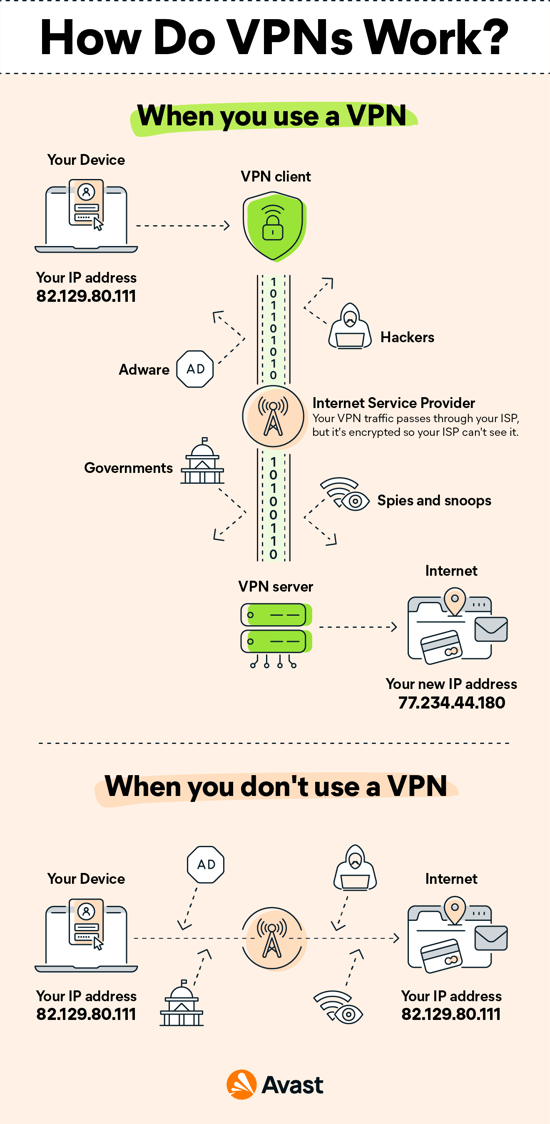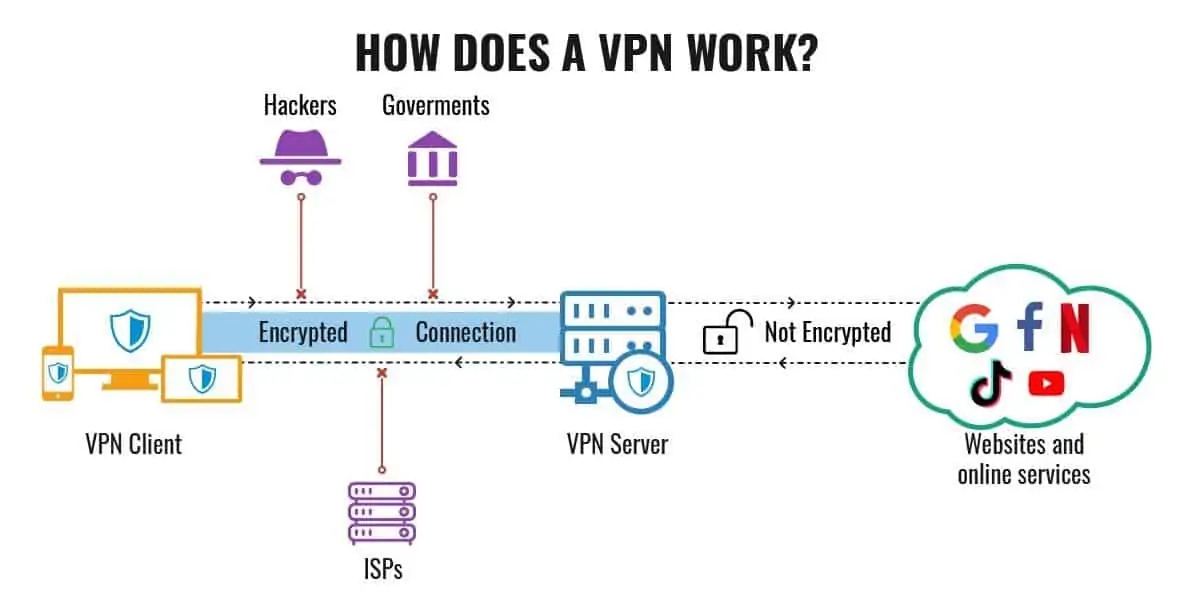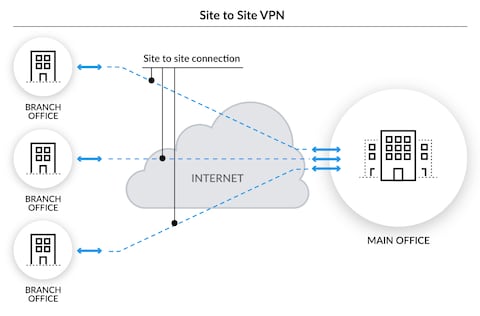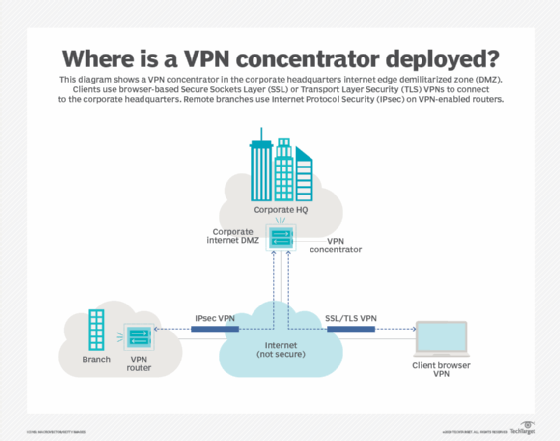Featured
Table of Contents
- – How To Use A Vpn: 8 Steps (With Pictures)
- – What Is A Business Vpn? │ Business Vpn Uses An...
- – What Is A Vpn & How Does It Work?
- – How To Use A Vpn: 8 Steps (With Pictures)
- – Understanding The Ring App And Virtual Privat...
- – What Is A Vpn? How It Works & Why Online Sec...
- – What Is A Vpn And How Do They Work?
- – What Is A Vpn? How Does It Work? - Dns Filte...
How To Use A Vpn: 8 Steps (With Pictures)
In a mobile VPN, the server still sits at the edge of the organization's network, making it possible for safe and secure tunneled access by verified, authorized clients. Mobile VPN tunnels are not tied to physical IP addresses.
Hardware VPNs offer a variety of advantages over software-based VPNs. In addition to offering improved security, hardware VPNs can offer load balancing for large client loads. Administration is managed through a web internet browser user interface. A hardware VPN is more expensive than a software-based one. Because of the cost, hardware VPNs are more practical for larger services.

Paid supplier choices tend to be advised more frequently than totally free ones. Some VPNvendors, amongst many, include the following: contains a strong collection of security features with a big collection of servers. Nord, VPN has features such as Tor browser connections for confidential web surfing, while preserving a strong stance on client privacy.
What Is A Business Vpn? │ Business Vpn Uses And ...
It does not offer too much in terms of additional features and personal privacy tools. Still, it is normally considered a great VPN service. is a VPN service with a big and varied set of distributed servers. It has strong privacy and info practices concentrated on security and provides additional functions such as split tunneling.
VPNs are legal in the United States, but users and companies need to check if they are legal in specific nations. Lots of VPNs offer very similar technologies, so it can be hard to pick which VPN will work best. Paid VPN services tend to be more relied on and include more security functions.
Around 2017, web users in the United States found out that ISPs might gather and offer their browsing history, and net neutrality ended up being a concept people had to combat for-- and efficiently lost. An expense was passed by the U.S. House of Representatives in 2019 to bring back net neutrality, however was ultimately blocked by the Senate.
What Is A Vpn & How Does It Work?
With this understanding, the usage of VPNs ended up being a more legitimate requirement for people.

A VPN reroutes your traffic through a remote server, encrypting it while doing so. Typically, when you try to access a site, your ISP (Web Service Service provider) gets the request and reroutes you to your destination. But when you link to a VPN, it reroutes your web traffic through a remote server before sending it over to your destination.
VPNs help make sure security anyone obstructing the encrypted data can't read it. Numerous years back, the most typical way to link computer systems between several workplaces was by utilizing a rented line. Rented lines, such as ISDN (integrated services digital network, 128 Kbps), are personal network connections that a telecom company can lease to its clients.
How To Use A Vpn: 8 Steps (With Pictures)
These connections form a single wide-area network (WAN) for the business. Though rented lines are trusted and secure, the leases are costly, with costs increasing as the distance in between offices boosts. Today, the web is more accessible than ever previously, and internet service suppliers (ISPs) continue to develop faster and more trustworthy services at lower expenses than rented lines.

Paid VPN services function very much like business VPNs however go through a VPN supplier to reach the web, rather than via a personal service. These services are extremely simple to use. All you need to do is download the software application, install it on your device, and connect to the server of your option.
First, let's check out an example that explains how a VPN compares to other networking choices.
Understanding The Ring App And Virtual Private Networks ...
All your internet traffic is routed through this tunnel to the server, which then sends out the traffic off to the general public web as usual. Information returning to your gadget makes the same journey: from the internet, to the VPN server, through the encrypted connection, and back to your device.
There are a couple of options out there to establish your own, such as Summary. Doing so is fairly uncomplicated, however you'll either require to maintain a server or lease one, which is less easy. While there are some efforts to make self-hosted VPNs more available, it's something best left to tinkerers who are excited to get their hands (digitally) filthy.
If you do not like that a business you're currently paying is making money from your data or if you have issues about ISPs hoarding comprehensive information about your activities, a VPN will assist. Not even your ISP can see your web traffic when you utilize a VPN.VPNs also make it harder for marketers and others to track you online.
What Is A Vpn? How It Works & Why Online Security Matters
When the VPN is active, your true IP address is hidden, and anybody seeing you can only see the IP address of the VPN server. By concealing your genuine IP address, VPNs deny snoops one tool used to identify and track you online. Regardless of that, VPNs do not make you fully confidential online.

Some VPN services include committed antivirus tools also, and some antivirus companies now use VPNs. We do not usually evaluate the malware-detecting capabilities of VPNs, since we see VPNs mainly as a privacy service. To resolve the danger of malware, our company believe standalone anti-malware softwarewhether it's one you buy or the one that ships with your computerdoes a much better job.
A VPN will hide the contents of your web traffic from some observers and can make it harder for you to be tracked online. A VPN can, at best, provide only restricted protection versus the threats you're most likely to experience on the web: malware, social engineering scams, and phishing websites.
What Is A Vpn And How Do They Work?
All your internet traffic is routed through this tunnel to the server, which then sends the traffic off to the public web as typical. Data returning to your gadget makes the same journey: from the web, to the VPN server, through the encrypted connection, and back to your machine.

There are a couple of choices out there to establish your own, such as Outline. Doing so is relatively uncomplicated, however you'll either need to preserve a server or rent one, which is less basic. While there are some efforts to make self-hosted VPNs more available, it's something best delegated tinkerers who are eager to get their hands (digitally) dirty.
If you do not like that a business you're currently paying is profiting from your data or if you have issues about ISPs hoarding in-depth information about your activities, a VPN will assist. Not even your ISP can see your web traffic when you use a VPN.VPNs also make it harder for advertisers and others to track you online.
What Is A Vpn? How Does It Work? - Dns Filtering
When the VPN is active, your true IP address is concealed, and anybody seeing you can just see the IP address of the VPN server. By concealing your real IP address, VPNs deny snoops one tool used to identify and track you online. Regardless of that, VPNs do not make you fully anonymous online.
Some VPN services consist of dedicated antivirus tools as well, and some antivirus business now use VPNs. We don't generally test the malware-detecting abilities of VPNs, since we view VPNs mainly as a privacy service. To deal with the danger of malware, our company believe standalone anti-malware softwarewhether it's one you buy or the one that ships with your computerdoes a better job.
A VPN will hide the contents of your web traffic from some observers and can make it harder for you to be tracked online. A VPN can, at best, provide just restricted protection against the risks you're most likely to encounter on the web: malware, social engineering rip-offs, and phishing websites.
Table of Contents
- – How To Use A Vpn: 8 Steps (With Pictures)
- – What Is A Business Vpn? │ Business Vpn Uses An...
- – What Is A Vpn & How Does It Work?
- – How To Use A Vpn: 8 Steps (With Pictures)
- – Understanding The Ring App And Virtual Privat...
- – What Is A Vpn? How It Works & Why Online Sec...
- – What Is A Vpn And How Do They Work?
- – What Is A Vpn? How Does It Work? - Dns Filte...
Latest Posts
Best Vpn For Business
9 Best Corporate & Small Business Vpn Solutions
Vpn By Google One - Extra Online Security For Your Phone
More
Latest Posts
Best Vpn For Business
9 Best Corporate & Small Business Vpn Solutions
Vpn By Google One - Extra Online Security For Your Phone